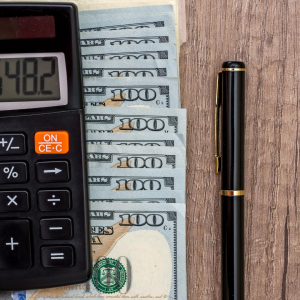
Being organized is a key part of being able to manage your money successfully. It took me a while to figure that out but once I did, I was much more efficient at knowing my money position at any time and easily able to find and update important financial information. Essentially, I implemented a money management system. I put together a system that helps me stay on top of my finances and be in control.
Hint: A system is the one strategy you need to achieve your goals. Check out the livestream where I explain it more. Achieve Your Goals With This Strategy
When it comes to implementing a money management system, here are a few steps that you should take:
SET UP A MONEY MANAGEMENT STATION
A money management station is a place where you will take action on your finances. It can be an office in your home, an area in the corner of a room or a place on your kitchen or dining room table. Personally, I have a desk set up in the corner of my bedroom. It has my laptop, paper, pens, pencils, and everything else I need to review and update my budget and complete any financial transactions.
CREATE A MONEY MANAGEMENT PROCESS
The money management process will drive how you handle your day to day financial transactions. For instance, what do you do when you get mail? Do you just put it in a pile on the table and leave it to look at later? Or do you sort through it and organize it into action piles? Transparent moment here, I used to just stack it in a corner until I felt like dealing with it. I’m sure you can imagine how that turned out. Yes, late payments and other costly things. Think credit report updates. Creating a money management process is the key to being efficient because we could all use some extra time, right?
MAKE A LIST OF FINANCIAL DOCUMENTS TO KEEP AND DECIDE HOW YOU WILL STORE THEM
What financial documents you keep will depend on what’s important for you and your family, but here is a list of typical documents you should have on hand:
- Life Insurance Policies
- Health Directive
- Wills, Trusts etc.
- Bank statements, investment statements, monthly bills
- Receipts of big purchases
- Deeds, Titles
- Warranties, User Manuals
- Loans
Deciding ahead of time how you want to store your financial documents reduces the stress when you or your loved ones are trying to find those important documents in emergency situations. No matter how you store them, the goal is to have them secure but accessible whenever you or your family needs to access them. You can store the documents physically or electronically, it’s generally a matter of preference. Physical storage would require some type of filing system or cabinet, preferably disaster proof. Electronic or digital storage is paperless and requires you to convert your current paper documents to digital files. Personally, I use a combination of both methods.
CREATE A FINANCIAL EMAIL ACCOUNT FOR ALL FINANCIAL MATTERS
Creating a separate financial email account was a game changer for me. It stopped me from missing the important financial emails in the sea of other not so important emails. I can quickly go to that email inbox and see anything I need to take action on. It could be as simple as yournamemoney@ gmail.com. You will want to make sure you have a secure password or set up two factor authentication so no one will be able to hack into it, since the name may be enticing.
USE A CALENDAR TO CAPTURE ALL BILL DUE DATES
I use a paper calendar and an app to capture the due dates of my bills, especially since I have everything on autopay. (Autopay is a life and time saver.) I set reminders at least a week ahead so that I can make sure the funds are available for the payments.
One of the last steps of my money management system is to set a recurring date to review my money. I’ll go into more detail on that in a future post.
Do you have a money management system? Or do you just wing it?
